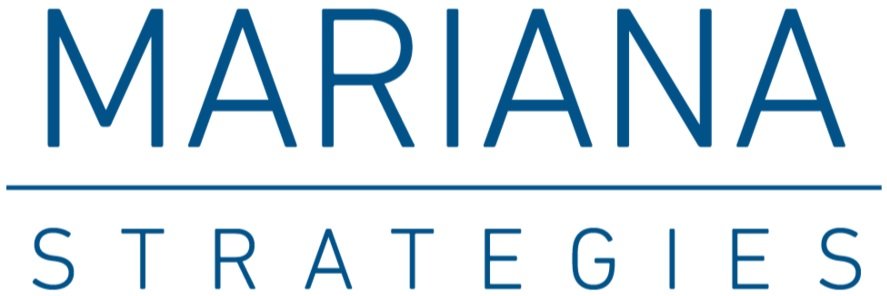How Trump’s Executive Orders Affect DEI Programs
January 24, 2025. Audrey here. We've been following the executive orders issued this week related to diversity, equity, and inclusion efforts. For private sector organizations (including non-profits, foundations, bar and medical associations as well as businesses) there are important items to pay attention to.
At Federal Agencies. DEI initiatives have been pulled down across all federal agencies, including placing employees working on DEI efforts on paid leave. Executive Order 14167 terminates, “to the maximum extent allowed by law, all DEI, DEIA, and ‘environmental justice’ offices and positions (including but not limited to “Chief Diversity Officer” positions).”
Federal Contractor and Federal Grant Recipients. The President rescinded past executive orders, including EO 11246 (1965) on implementation of the Civil Rights Act, issued by President Lyndon Johnson. EO 11246, prohibited federal contractors and subcontractors "from discriminating in employment decisions on the basis of race, color, religion, sex, or national origin, it also required contractors to "take affirmative action to ensure that applicants are employed, and that employees are treated during employment, without regard to their race, creed, color, or national origin."
A new requirement will be that Awardees must state compliance with Federal anti-discrimination laws and that awardees do not operate “programs promoting DEI that violate any applicable Federal anti-discrimination laws.” The rescission of EO 11246 will impact investigations into affirmative action compliance for federal contracts. The impact on DEIA activities will depend on whether the activities violate federal anti-discrimination laws. Organizations were prohibited from discriminating in violation of federal law before January 20, so the impact on non-discriminatory DEIA activities should be trivial.
Private Business, Foundations, Non-Profits. There is less that executive orders can do to impact your business directly, but Executive Order 14171 has language aimed for the maximum chilling effect on the corporate and charitable drivers of culture in the US. The order directs federal agencies to submit enforcement plans that would encourage private entities to “end illegal discrimination and preferences, including DEI.” Agency heads are instructed to name "the most egregious and discriminatory DEI practitioners,” and “up to nine potential civil compliance investigations of publicly traded corporations, large non-profit[s]…, foundations with assets of 500 million dollars or more, State and local bar and medical associations, and institutions of higher education with endowments over 1 billion dollars," among other items.
For Grantees and Private Entities: What to Make of the Executive Orders
Title VII of the Civil Rights Act of 1964 prohibits harassment and discrimination on the basis of race, sex, national origin, color, and religion. Its antagonists characterize DEIA activities as a means to discriminate against white men, who, of course, are protected on the basis of race and sex by Title VII.
The Meltzer Center at NYU Law School has looked closely at the questions of discrimination raised by these activities. According to their analysis, a DEIA program is considered most legally risky when it confers a preference to members of legally protected groups (e.g., based on race, color, religion, national origin, or sex per Title VII) in ways that provide tangible benefits, like:
Jobs;
Promotions;
Pay raises; or
Training opportunities.
Examples of risky DEI practices include hiring quotas, tiebreaker decisions favoring protected groups, group-specific internships or fellowships, and tying manager compensation to diversity goals. These approaches risk legal challenges by creating preferential treatment tied to protected characteristics.
What can you do?
For private entities, engage in DEIA efforts that do not discriminate on the basis of protected categories. According to the Meltzer Center, this may include efforts such as:
Expanding outreach to diversify candidate pools;
Implementing structured interview procedures;
Developing mentorship and coaching programs accessible to all;
Offering employee education;
Auditing evaluation and promotion processes to identify and eliminate bias, among other strategies.
DEI programs that do not provide a “preference” to legally protected groups (such as those defined by race or sex) are expected to remain legally secure for the foreseeable future.
We are following these developments. As DEIA practitioners we seek to ensure that workplaces are inclusive and create opportunities for all employees to thrive. As an attorney with employment law experience, anti-discrimination (and anti-harassment) laws are at the core of my background and expertise. Private organizations, federal grantees, and contractors should review programs related to DEIA to ensure compliance as the requirements change. Please reach out to discuss any aspect of our work together and how we can help.
Audrey Roofeh, Esq.
CEO and Founder, Mariana Strategies
+1 202 854 1268, roofeh@marianastrategies.com
These materials are provided for general informational purposes only, based on information available at the time of publication. They are not intended to serve as legal advice, a legal opinion, or a substitute for consultation with qualified legal counsel regarding specific facts or circumstances. Mariana Strategies assumes no liability for any use of these materials. Sharing these materials does not create an attorney-client relationship, and they should not be relied upon as a replacement for professional legal advice. Please note that individual situations may differ, and past results do not guarantee similar outcomes.
